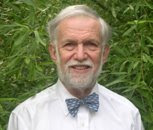PSM is training and awareness that what goes on in your brain effects your body and vice versa. Emotional issues cause dysfunction and disease, disease and dysfunction leads to emotional problems. This idea goes back to ancient Greece, where the expression, Sound mind, Sound body originated.
This basic mind-body connection has been lost in today's health care system. MRI's and CT scans, even of the brain, show nothing of the emotional status and psychiatrists-psychologists rarely go below the neck.
I was fortunate to have several years training with a founder of The Academy of Psychosomatic Medicine. What I learned and use everyday is how to listen to the patient as a person:
- Hearing what they say as well as what they don't say,
- Understanding that all symptoms have emotional components.
I am not saying they are not real. They are very real, very intense and are associated with problems like peptic ulcers, irregular heart beats, high blood pressure, even heart attacks.
Underlying stress, anxiety or depression contributes to all physical symptoms. What is worse, the patient gets checked out and is told that all tests are normal. This makes it sound as though the symptoms are not real or legitimate.
Can this type of situation be treated? Of course it can, but it takes experience and special tests to understand the delicate mind-body connection. Once this is achieved, proper treatment is readily available, restoring the patient to good health.
- Dr. Neil Raff, MD
At each visit to Advanced Medicine of Mt. Kisco, Dr. Raff follows through on his mantra: Taking time to listen to the patient is the most important diagnostic test there is. He does this by providing a very thorough intake that helps him look at your whole body system and how it is interacting.
We invite you to come meet with us, at no charge, to discuss your health concerns and goals. Our practitioners and you will be more certain as to the appropriateness of developing a practitioner-patient partnership. Call us at (914) 241-7030 for a 15 minute complimentary consultation.
At each visit to Advanced Medicine of Mt. Kisco, Dr. Raff follows through on his mantra: Taking time to listen to the patient is the most important diagnostic test there is. He does this by providing a very thorough intake that helps him look at your whole body system and how it is interacting.
We invite you to come meet with us, at no charge, to discuss your health concerns and goals. Our practitioners and you will be more certain as to the appropriateness of developing a practitioner-patient partnership. Call us at (914) 241-7030 for a 15 minute complimentary consultation.


No comments:
Post a Comment